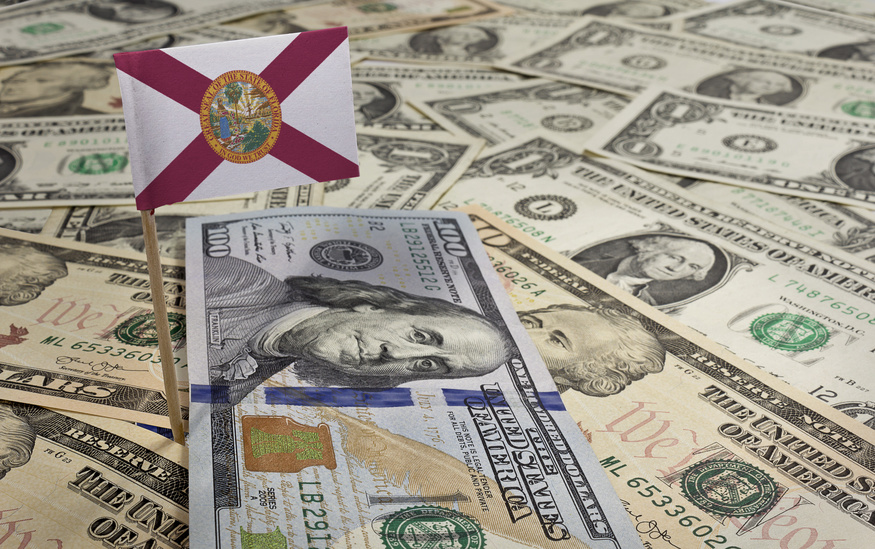Many people do not think of creating a will, trust or other documents in preparation for their death; and depending on the size of the estate, could leave a considerable cost for their heirs. As of 2017, Florida does not have an estate tax; however, dying intestate – without a will and / or a trust – could create substantial costs.
Save Money Later By Creating an Estate
When you are in your young adult years, senior years seem like they are so far away that you don’t have to worry about anything for 20 or 30 years. However, death and incapacitation could come at any time. Even if you don’t have a lot – you rent, but you have a car, you are single, but you have a good job and a savings account and may have started a retirement account – you should have an estate plan. A car accident or an unexpected illness could cause you to have to have someone manage your affairs, or could even cause your death.
For people of any age, without a will, your nearest relative will have to go through the probate process. However, if you have a will and a trust, and it’s drafted properly, your heirs might be able to avoid the entire probate process. Trusts help avoid many federal taxes, too. And, if you become incapacitated, a trust seamlessly moves control of your assets to a selected heir with little to no tax ramifications, depending on the size of your estate and how you set the trust up.
Federal Taxes
In 2001, the federal tax exemption for estates was only $650,000. This means that your heirs paid taxes on anything you owned that brought your entire estate value over that amount. In 2016, the exemption was $5.45 million per person. This means that 99.8 percent of the estates do not owe any estate tax.
However, the exemption is always subject to change, thus you should always keep yourself apprised of state and federal estate tax laws and you should be ready to amend your estate documents when laws change. An estate law firm such as France Law Firm will keep up with all of the changes to the tax laws, and working with your accountant, will be able to draft an estate plan to help you take advantage of any tax incentives, whether state or federal.
Checklist for Tax Incentives
Know and List Beneficiaries
Certain accounts and policies require beneficiaries. Upon your death, these accounts and policies go to the person named. If a beneficiary passes or you decide to change a beneficiary on an account, be sure to make the change as soon as possible after the event that caused the change. Find out from the account servicer whether you need additional documents to avoid having that account go through probate court. Sometimes the servicer of your retirement account will require additional documentation or will require your heirs to take your estate through probate.
If you choose not to name a beneficiary, your heirs will have to take your estate through probate. This could become costly, even if you put that account in your will.
Draft a will. Not only will you ensure that your assets are distributed to those you want to have them, but a will could save your heirs the a lot of hassle with the probate court after your death. Even if your estate has to go through probate, it’s less costly and quicker if you have a will.
Create a Trust. A trust could become beneficial prior to your death, and could save your family taxes an other headaches. A trust attorney will go over your situation with you to determine the best type of trust to set up depending on your situation. A living trust allows those named to take over the care of your financial matters should you become incapacitated and cannot handle your own matters. Whether you get into a crash, have dementia or any other issue that causes you the inability to handle your affairs, a living trust seamlessly allows your family to handle your affairs. It also protects your assets from creditors and nursing homes.
With a trust, you will be able to set up conditions on how your money is to be spent or distributed. However, a trust is taxed on income it receives from any type of income it receives, including but not limited to interest and dividends. Thus, you should pay certain expenses from the trust to decrease the tax burden.
Retirement Accounts
Consider converting traditional 401(k) and IRA accounts to Roth Accounts since traditional accounts are subject to income taxes. Should the rules change as to how those accounts are taxed, you may not be able to spread the income taxes out over the lifespan of the beneficiary. A Roth Account allows for tax-free distributions.
Distribute Assets While You are Alive
Gifting your money while you are alive is one tax benefit that you could easily take advantage of. However, this method is limited in that you won’t want to give away all of your money by the time you’re 70 years old and then live until you’re 95 years old. Furthermore, the IRS only allows up to $14,000 per person per year. Putting your assets into a trust may avoid taxes on these assets and allow you to keep control of them while you are alive and while you are able to handle your own affairs.
Contact France Law Firm
Regardless of where you are in life and what age you are, contact France Law Firm to set up an appointment to discuss the best way to take advantage of tax incentives and to set up your estate to avoid probate and other costs associated with passing your assets to your heirs.






















